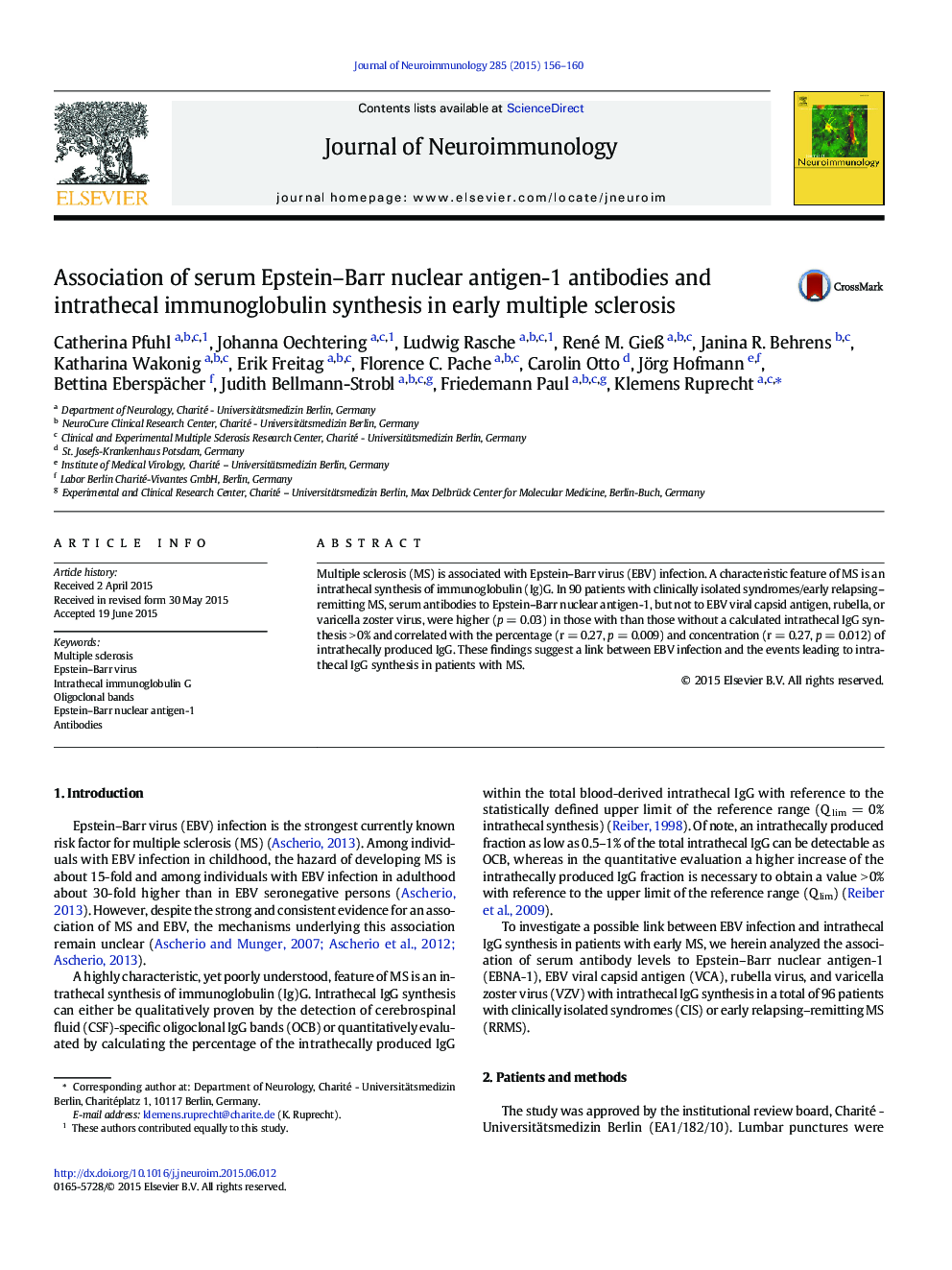| Article ID | Journal | Published Year | Pages | File Type |
|---|---|---|---|---|
| 6020200 | Journal of Neuroimmunology | 2015 | 5 Pages |
â¢Multiple sclerosis (MS) is associated with Epstein-Barr virus (EBV) infection.â¢Intrathecal synthesis of immunoglobulin (Ig)G is a characteristic feature of MS.â¢We correlated serum antibodies (Abs) to EBV and other viruses with intrathecal IgG.â¢EBNA-1, but not VCA, rubella, or VZV Abs were associated with intrathecal IgG.â¢This suggests a link between EBV infection and intrathecal IgG synthesis in MS.
Multiple sclerosis (MS) is associated with Epstein-Barr virus (EBV) infection. A characteristic feature of MS is an intrathecal synthesis of immunoglobulin (Ig)G. In 90 patients with clinically isolated syndromes/early relapsing-remitting MS, serum antibodies to Epstein-Barr nuclear antigen-1, but not to EBV viral capsid antigen, rubella, or varicella zoster virus, were higher (p = 0.03) in those with than those without a calculated intrathecal IgG synthesis > 0% and correlated with the percentage (r = 0.27, p = 0.009) and concentration (r = 0.27, p = 0.012) of intrathecally produced IgG. These findings suggest a link between EBV infection and the events leading to intrathecal IgG synthesis in patients with MS.
